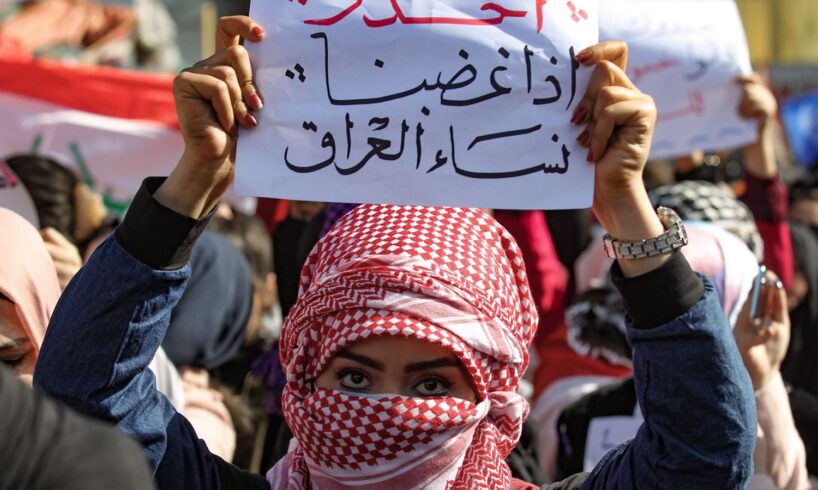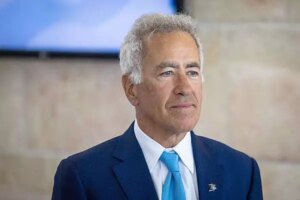
Shafaq News
Iraq’s Parliament counts more women than ever before, yet their presence
has not translated into stronger protections for women’s rights. Quotas
guarantee seats, but real gains remain elusive.
Women’s Seats Through the Quota Era
Women entered parliament in large numbers after the 2003 quota law
guaranteed them 25% of the seats. According to data by the Council of
Representatives, over four election cycles, their presence in parliament has
hovered around one hundred seats:
-2006–2010: 99 women of 275 seats (78 quota, 21 beyond)
-2010–2014: 96 of 325 (81 quota, 15 beyond)
-2014–2018: 103 of 329 (83 quota, 20 beyond)
-2018–2022: 106 of 329 (84 quota, 22 beyond)
For the upcoming elections, the Independent High Electoral Commission
(IHEC) reports that only 37 of 130 party nominees are women, while all four
independent candidates are men. Despite the quota, cultural and technological
barriers have kept women politically marginalized.
International assessments reinforce this paradox. A joint 2020 report by
the UN Assistance Mission for Iraq (UNAMI), the UN Economic and Social
Commission for Western Asia (ESCWA), and the Iraqi Institute found Iraq ranked
70th globally in women’s parliamentary representation. It noted that although
women held certain decision-making roles in government after 2003, they had not
secured any top executive or presidential posts. By 2023, Iraq improved
slightly to 65th worldwide and second among Arab states, according to CEO
World’s ranking of 150 countries with the highest share of women in parliament.
What Women Deliver in Practice
A report by the Middle East Research Institute (MERI) shows that women’s
legislative activity is proportionate to their share of seats but limited in
substance:
-Out of every 25 MPs proposing bills, 19 are men and 6 are women—a ratio
aligned with the 25 percent quota.
-Only one law directly concerned women’s rights: Iraq’s accession to the
International Maternity Protection Convention.
-Women are represented in most of parliament’s 24 committees and chair
four of them. Yet some key committees—such as Youth and Sports and
Communications—have no women at all.
-In interventions, objections, and interrogations, women’s activity
mirrors their numerical share: one woman for every four men.
MERI concludes that while women’s activity matches their representation,
it has not delivered significant progress for women’s rights. This gap is most
visible in the fate of landmark legislation.
The Missed Laws
At the heart of the debate lies the long-delayed Domestic Violence Law.
The draft was submitted to the government in 2012, amended in 2019, and
approved by the cabinet in 2020. Yet it has never been scheduled for
parliamentary debate. The bill defines domestic violence as any act or omission
that results in violence or causes violence to any family member, leading to
material or moral harm.
The law faced objections from within the legislature, even from some
women lawmakers, because it challenged patriarchal authority and prevailing
customs.
Arif al-Hamami of the Parliamentary Legal Committee told Shafaq News
that the committee had completed its review and referred the draft to the
presidium, but it was never prioritized. “Our responsibility ends with reading
and review,” he explained, noting that specialized committees had organized
workshops and consulted civil society groups. In the end, “other legislation
was given priority, pushing the bill aside.”
The Legal Committee in the Iraqi Parliament is predominantly male, with
only 2 women among its 17 members—an imbalance that has constrained the
advancement of reform.
Another debated law is the Personal Status Law, which was approved by
the Parliament earlier this year after being submitted as a proposed amendment
by both the Legal Committee and the Women, Family, and Children Committee.
While some women lawmakers supported the measure, many others opposed it,
arguing that it violates women’s rights.
Azhar Zaid Al-Jubouri, Head of Al-Mada Foundation for Human Rights and a
member of the Iraqi Women’s Network, warned of dangerous provisions in the law.
She told Shafaq News that the amendments weakened custody rights, permitted
child marriage, deprived widows of inheritance, and stripped away marital
protections, describing them as “a dangerous regression that returned women to
something resembling pre-Islamic times.”
Voices from the Ground
For activists, the presence of women MPs has not shifted Iraq’s
political reality. Al-Jubouri argued that some blocs deliberately nominate
women with little knowledge of rights issues to prevent them from pressing for
reform. “The hope was that women would carry the voice of women,” she said.
“Instead, their voices are either absent or used against women themselves.”
Suhaila al-Asam, a women’s rights campaigner, told our agency that
political rivalries, religious pressures, and entrenched traditions repeatedly
block protective laws. Opponents, she added, often frame them as “incompatible
with Iraqi values.” She described female MPs as “a media façade rather than
genuine decision-makers,” pointing to the persistence of male dominance in the
legislature.
Structural Dysfunction
The weakness of parliament itself has compounded the problem. A recent
rift between Speaker Mahmoud al-Mashhadani and Deputy Mohsen al-Mandalawi has
left the chamber in deadlock. Independent MP Jawad al-Yasari told Shafaq News
there is “no indication of convening anytime soon,” as blocs focus on the
November elections.
Since January 2022, parliament has convened only 132 sessions—just over
half of the 256 mandated annually under its bylaws. This dysfunction is eroding
public trust and leaving vital laws, including those affecting women, in
permanent limbo.
As the November elections approach, women remain symbolically visible
yet structurally sidelined. Without changes in how parliament prioritizes
legislation and empowers women beyond quota numbers, representation risks
remaining an exercise in counting seats rather than protecting rights.
Written and edited by Shafaq News staff.





